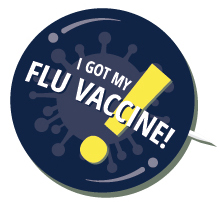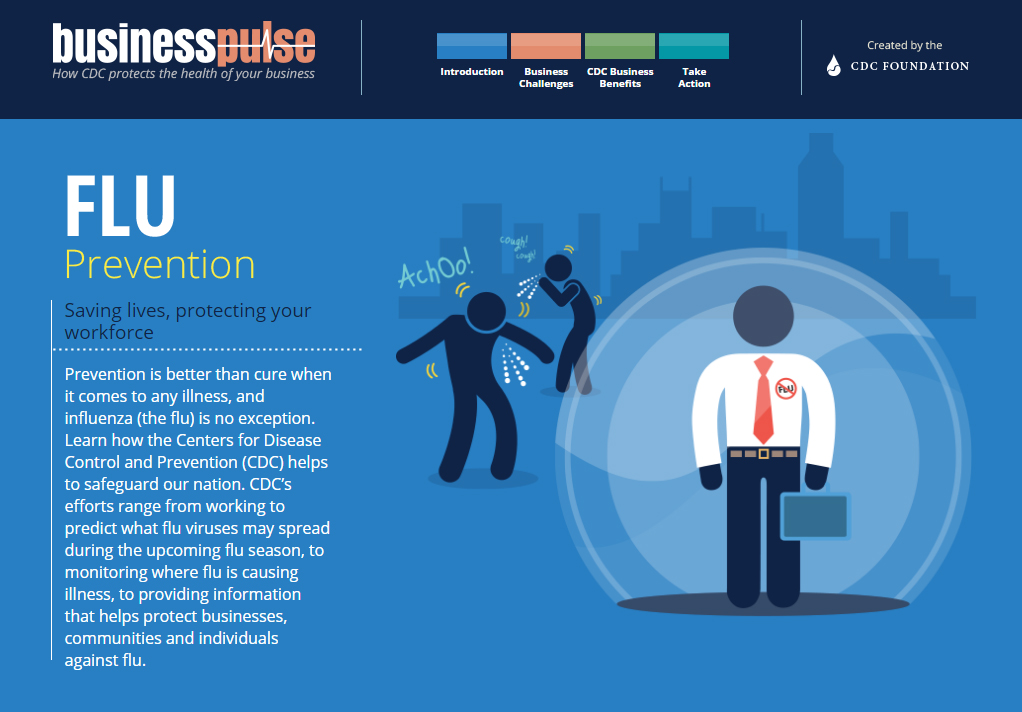You are here
Business Pulse Helps Employers Prepare for the 2014-2015 Flu Season
For me, flu prevention is personal. This past weekend I spent time with my two-year-old granddaughter in New York City, and it got me thinking about how important it is for her to get a flu vaccine—and for our entire extended family to get vaccinated as well.

When I returned to work in Atlanta this week, I began thinking about how important each member of our staff is to the CDC Foundation’s business continuity as we advance CDC’s life-saving work. To help protect them,and our vital efforts, all employees who participate in our benefits plan will have the opportunity to get a free flu vaccine at our offices in early October, and I’m setting aside time that day to get my flu shot. To me, it’s is a simple, effective way to protect myself, my colleagues and my family from influenza.
That’s why I’m pleased that we’re launching Business Pulse: Flu Prevention today. The web-based business brief offers access to guidelines and recommendations from the Centers for Disease Control and Prevention (CDC) to help businesses prevent and control the flu during the 2014–2015 flu season.
Here are five takeaways I have from Business Pulse that I hope will also help you protect your employees’ health—and your company’s profitability:
- Vaccination is the single best way to prevent the flu. According to CDC, an estimated 45 percent of the U.S. population got a flu vaccine during the 2012-2013 flu season, preventing an estimated 6.6 million flu-related illnesses, 3.2 million flu-related medical visits and 79,000 hospitalizations. However, many more people could have been protected if they had gotten vaccinated.
- Employers can play an important role in preventing flu by promoting flu vaccination efforts and taking steps to protect their employees from flu.
- Anti-viral drugs can treat the flu. A flu vaccine is the first and best way to prevent influenza, but antiviral drugs can lessen symptoms, shorten the time a person is sick and prevent serious flu complications, like pneumonia. For employees with a high-risk medical condition, an antiviral drug can mean the difference between having milder illness instead of very serious illness that could result in a hospital stay.
- Everyday preventive steps can interrupt the spread of flu in the workplace. Steps like staying home and away from others when sick, covering coughs and sneezes and washing hands are important.
- Flu seasons are unpredictable and vary in severity, and influenza can make anyone sick—including employees who are otherwise healthy. CDC encourages everyone 6 months and older to get vaccinated this flu season.
CDC’s flu prevention efforts are vital to a healthy workforce and economy—as well as to a healthy family and community. I encourage you to check out Business Pulse: Flu Prevention for advice and simple actions you can take to help ensure healthier employees and lower healthcare costs.
